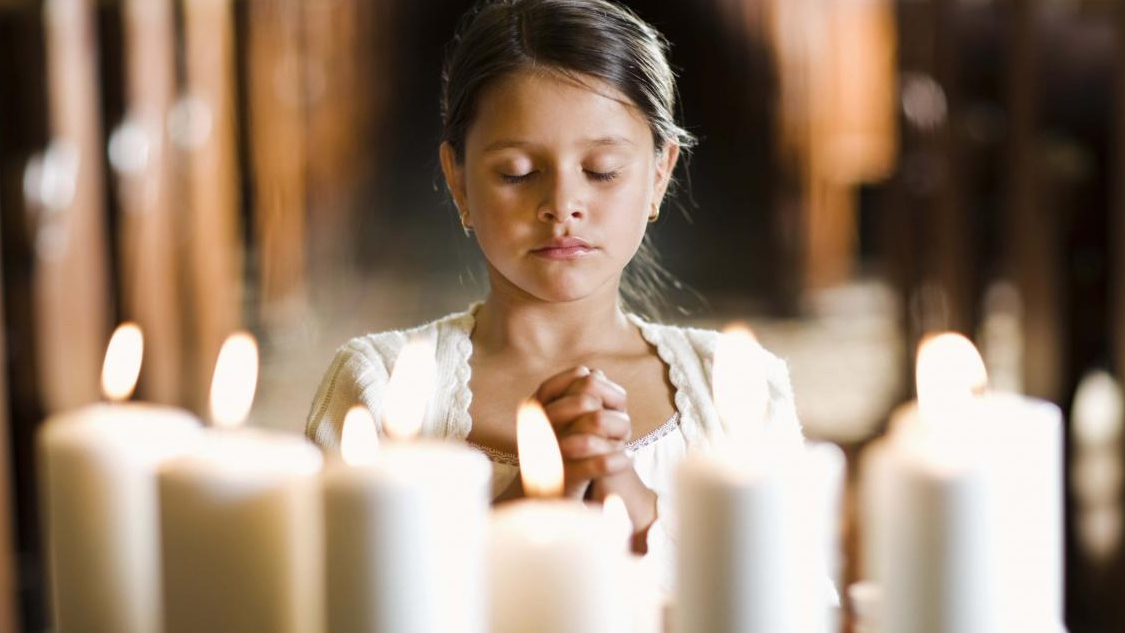Continuing my series of articles on prayer, I’d like to address the question “But for whom should we pray?” The simple answer is for almost everyone. But there is a hierarchy of prayer. We must start by praying for ourselves and those closest to us, and then move outward.
When we pray for someone, we should start with ourselves. It is very healthy in our spiritual lives if we begin by acknowledging how utterly dependent we are on God. Our human nature, tainted by Original Sin, may lead us to believe that we are self-sufficient and have no need of God. A microscopic virus, however, can land us flat on our back, or a natural disaster can deprive us of our livelihood or an accident or act of violence can take away someone from us whom we love and how quickly we realize how fragile human life can be!
Catholic philosopher Alice von Hildebrand, who only recently died at age 98, stressed how important it is in our spiritual lives that we get on our knees and “beg” God for the graces we need. These can be that we live a virtuous life; that we live lives of patience, chastity, humility, generosity, kindness and temperance. We may find ourselves in the grip of a particular vice, such as drug or alcohol abuse, sexual sin, a bad temper or the habit of using bad or crude language. We can ask God’s help that we are able to provide for our families, overcome an illness or be safe in our travels. Each one of us knows our own particular circumstances, and the graces we need most.
We need to pray next for those around us, particularly within our immediate and extended families. While it is a wonderful thing to help others in their bodily needs, what the Church calls the Corporal Works of Mercy, truly the greatest act of charity we can offer others is to pray for them, which is a Spiritual Work of Mercy. A Catholic parent, for example, may pray for his child to take an interest and get excited about his Catholic faith, so that he may stay in the Church and grow in his relationship with the Lord. Parents may pray for the chastity of their children, that they develop healthy relationships and go on to successful marriages of their own. In addition, they may pray for their safety from the many harms that can threaten children. Children should be taught to pray for their parents as well.
We should pray for our friends and acquaintances. We all know people who are struggling with health issues, family strife or who are recovering from emotional and psychological wounds acquired earlier in life. There is no person you know who does not desperately need prayer.
Pray for your country and its leaders. How much more pleasant and positive our national life would be if when someone in public office upsets us, we began a regimen of prayer and penance for that person, instead of going on the attack on the streets or in social media!
Pray for the Church, its bishops and priests, for strong Catholic marriages and for vocations to the priesthood and religious life. Remember, Jesus said,
Matthew 9:37-38 “The harvest is abundant but the laborers are few; so ask the master of the harvest to send out laborers for his harvest.”
Pray for the souls in purgatory. Purgatory is a place of temporal suffering for those who have died but need to be purified before entering heaven. It is a neglected teaching, but nonetheless still a teaching of our Church! See the Catechism of the Catholic Church, 1030. It says, “All who die in God’s grace and friendship, but still imperfectly purified, are indeed assured of their eternal salvation; but after death they undergo purification, so as to achieve the holiness necessary to enter the joy of heaven.”
We are reminded in 2 Maccabees that it was a “holy and pious thought” to pray for the dead “that they might be absolved from their sin.” (2 Maccabees 12:45-46)
Souls in purgatory suffer tremendously, especially because they long to be with God in heaven. There are many stories of souls in purgatory who have been allowed to appear to people on earth to appeal for prayers. There is, in fact, a museum of the holy souls in purgatory in Rome that tells the story of such visitations!
We do not, however, pray for the saints or angels in heaven (to, yes, but not for), as they have no need of help, nor for Satan and the fallen angels, as they are forever lost.
And, we should also pray for those who bring difficulties into our lives. It has always been the Christian way to “turn the other cheek” (cf. Matthew 5:39) when someone does evil to us, and praying for those who hurt us a great way to respond in kindness.
Proverbs 25:22 “For live coals you will heap on their heads, and the LORD will vindicate you.”







